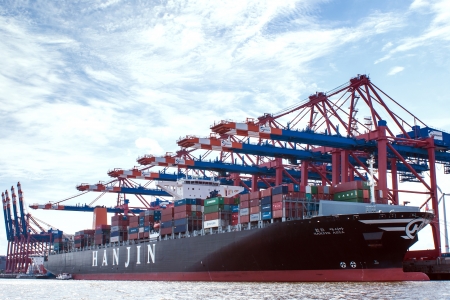5 October, 2016
The collapse of Hanjin Shipping Co Ltd, marked by its application for rehabilitation relief in South Korea at the end of August 2016, has given rise to a number of legal and commercial difficulties at an international level. Here, we review the steps Hanjin Shipping Co Ltd have taken in a number of jurisdictions around the globe and the practical consequences of those steps.
In this latest update we provide brief summaries of the impact of the collapse of Hanjin and recent developments in the litigation from our offices around the world where Clyde & Co continues to act on behalf of a wide range of parties involved in this important dispute. For further advice on any of the issues raised please speak to your usual Clyde & Co contact or any of the contributors to this update.
Hong Kong
Hong Kong has not adopted into domestic legislation the UNCITRAL Model Law on Cross Border Insolvency.
Unlike jurisdictions which have adopted the Model Law, e.g. the United Kingdom, an application to the Hong Kong Courts for recognition of foreign insolvency proceedings requires a balancing exercise of competing aims: assisting the foreign court conducting the main insolvency proceedings in achieving a universal distribution of assets, and ensuring that creditors seeking the Hong Kong Courts' assistance are treated fairly and equitably in enforcing their rights.
There have been cases in which Hong Kong Courts have recognised foreign rehabilitation/ liquidation proceedings, however it remains to be seen whether the Hong Kong Courts will recognise the Korean rehabilitation proceedings for Hanjin.
Singapore
In a landmark judgment on 9 September 2016, the High Court of Singapore exercised its inherent jurisdiction to grant, on an ex parte basis, interim orders for the recognition of Hanjin's Korean rehabilitation proceedings in Singapore.
The interim orders included a restraint of all pending, contingent or fresh proceedings and a stay of all present proceedings against Hanjin and its Singapore subsidiaries, and expressly included all enforcement or execution actions against the vessels beneficially owned or chartered by Hanjin and its subsidiaries (excluding the arrest of the Hanjin Rome). The interim orders will operate pending a further inter partes hearing, where interested parties will have the
opportunity to address the Court.
The Singapore High Court also elaborated on the factors that the Singapore Courts will need to take into account when determining whether they should recognise and/or give effect to foreign insolvency or rehabilitation proceedings. These factors include:
The connection of the company to the forum in which the rehabilitation proceedings are taking place and to the place of rehabilitation;
What the rehabilitation process entails, including its impact on domestic creditors, and whether it is fair and equitable in the circumstances; and
Whether there are any strong countervailing reasons against recognition of the foreign rehabilitation proceedings.
One notable feature of the Singapore High Court's orders was its decision to extend assistance even to the point of preventing the arrest of ships of the Hanjin fleet, not directly owned by Hanjin or its Singapore subsidiaries (excluding existing arrest proceedings involving the Hanjin Rome). This is an extremely novel ruling, appearing to depart from previous authorities, and will likely be the subject of challenge by interested parties.
The next hearing is scheduled to take place in the week of 31 October 2016.
For further information, please contact:
Ik Wei Chong, Partner, Clyde & Co
ikwei.chong@clydeco.com

.jpg)





